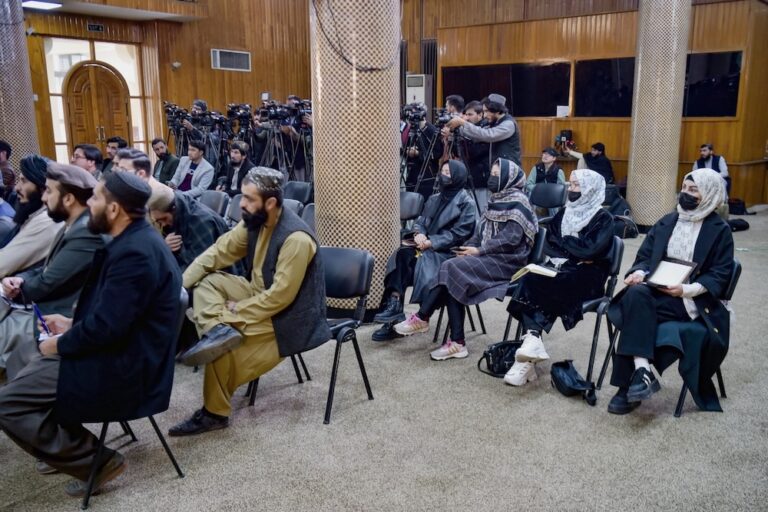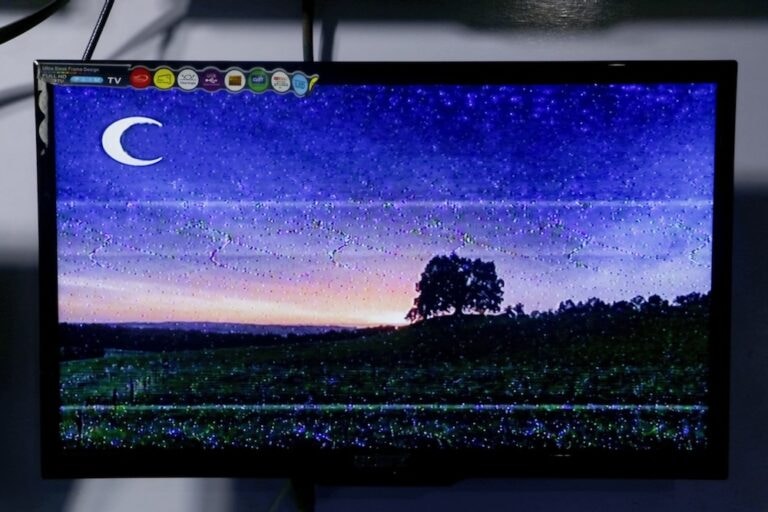(RSF/IFEX) – In a letter to Taliban Foreign Minister Moulvi Wakil Ahmad Motawakil, RSF protested the arrest of journalist Yvonne Ridley from the British weekly “Sunday Express”. “The reporter was only exercising her right to inform the international public about the situation inside Afghanistan,” said RSF Secretary-General Robert Ménard. The organisation urged the minister to […]
(RSF/IFEX) – In a letter to Taliban Foreign Minister Moulvi Wakil Ahmad Motawakil, RSF protested the arrest of journalist Yvonne Ridley from the British weekly “Sunday Express”. “The reporter was only exercising her right to inform the international public about the situation inside Afghanistan,” said RSF Secretary-General Robert Ménard. The organisation urged the minister to see to it that the British journalist and her two guides are released. “Arresting reporters who are only providing first hand accounts of the Afghan peopleâs situation is not the best way to reassure international critics,” added Ménard.
According to information obtained by RSF, on 28 September 2001, the Taliban militia arrested Ridley in Daur Buba district (near Jalalabad, fifteen kilometres from the Pakistani border). The journalist, along with two “guides” of unknown nationality, was wearing a burqah, the Afghan attire and veil imposed on women by the Taliban. According to the Afghan Islamic Press agency that provided the information, the Taliban also seized the journalistâs camera. The authorities accuse Ridley of having entered Afghanistan “illegally”. She allegedly had no passport with her. The journalist is currently detained in Jalalabad.
Contacted by RSF, Jim Murray, the “Sunday Express” tabloidâs news editor, confirmed that Ridley had crossed the border on 26 September with two guides, one of whom was a driver who claimed to know the area “very well.” She had not contacted the newspaper since arriving in Afghanistan, although she had a mobile phone in her possession. Ridley, aged 43, is a very experienced reporter who had covered several conflicts. She had been in Pakistan for several days with a colleague from the “Daily Express” to cover the situation in the country and at the border. Murray told RSF he had no immediate information about Ridley’s current situation.
Ridley is the first foreign journalist to have been arrested by the Taliban since the 11 September terrorist attacks in the United States. Hundreds of reporters are now in Pakistan and some of them have been trying to enter Afghanistan. Last week, a British Broadcasting Corporation (BBC) crew disguised as Afghan women managed to get inside Afghanistan and film in villages near the border.
In its report titled “The Taliban and the media”, published in September 2000, RSF wrote: “In August 2000 the authorities introduced strict regulations to cover the work of foreign reporters and special correspondents. On arrival in Kabul, they are given a list of “21 points to be respected”. The first is to give a true account of “what is really happening in Afghanistan” and not to “offend the people’s feelings”. Next comes a long litany of recommendations which might amount to no more than bureaucratic harassment in other countries but which testify to the Afghan authorities’ distrust of the foreign press and their determination to maintain strict control of reporters on Afghan soil. A document published by the information and culture department states that foreign journalists are not allowed to “go into private houses”, “interview an Afghan woman without the department’s permission” or “photograph or film people”. Journalists are also supposed to tell the department when they travel outside Kabul and to respect the country’s “no-go areas”⦠No penalties for the infringement of these regulations are specified in the documents issued by the authorities.” (see IFEX alert of 27 September 2000). The report is available on RSFâs website: www.rsf.org.


